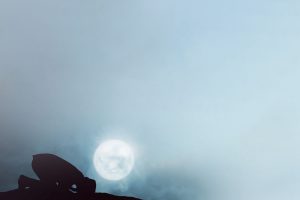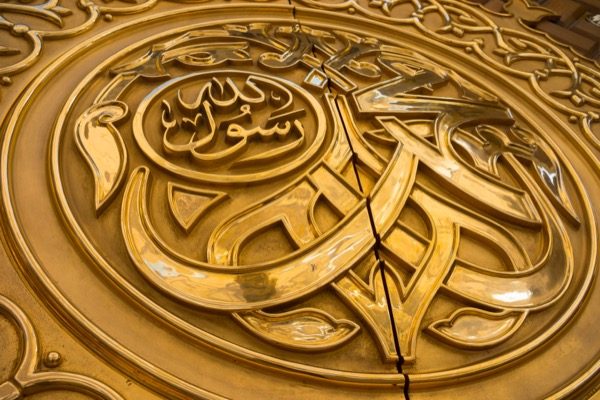
Kalim Sadiq, UK
The emotional, psychological and spiritual journey for Hajj commences once one has made the intention of going. It is not a decision to be taken lightly and there are many logistical issues that need to be sorted. However, once everything was booked we started to intensify our prayers and begin our spiritual journey to the house of Allah.
Hajj should be like wiping the slate clean. A new beginning. Getting rid of old baggage and starting fresh. One important, yet difficult step was to ask forgiveness of others. I remember that I had to think of anyone who may have a grudge against me; whether it was my fault or not, and writing down their names. Then either in person or on the phone, one by one, I would speak to them to remove any misunderstanding and ask for their forgiveness. The response was overwhelming and it felt as if a weight had come off my shoulders. It was very healing and taught me a lot about the importance of humility and brotherliness taught by Islam.
When one prepares for Hajj one ensures our financial obligations had been met as this is an important stage of preparing for Hajj.
The flight for Hajj was like no other and we could see how so many Muslim families like us had been preparing for this pilgrimage. We could hear prayers throughout the journey and there was a very positive energy amongst all passengers. The donning of the Ihram [two white unsown sheets] itself symbolized a new simple beginning in the cause of Allah. All in Allah’s eyes were equal and all we had with us was our good works.
Once in Makkah, we were amazed at the kindness of the people. We arrived in the city at 3 a.m and we had been dropped off at the wrong place. We were already exhausted and quite stressed as the authorities had taken our passports (as they do for all pilgrims) and now we had no way to get to our place of stay. While we were there, we bumped into some other people including a Dutch convert who had nowhere to stay because his tour operator had gone bust and abandoned him. This really made us think of how vulnerable we were in a foreign land with thousands of other pilgrims. However, Alhamdulillah [all praise belongs to Allah], one of the local officials and a group of local Makkans took it as their personal duty to look after us and took us in their own cars to our accommodation. It was as if the local people took it as a duty and blessing to help us Hajjis [pilgrims].
Our first Tawaf [circuit] of the Ka`aba was very pleasant as most people had already left for Mina. It was the first time that we could really feel the words ‘Labaik Allahumma Labaik’ (‘I am here, Oh Allah, I am here.’) being fulfilled. On first seeing the Ka`bah you feel a great surge of emotion as you place yourself at the threshold of the Almighty. Prayers for Huzoor [the Caliph (aba)] and the Jama’at [Community] flowed on our lips as we walked around the House of Allah.
The 9th of Dhul Hijjah or the day of Arafat is the most crucial day of Hajj. We were placed in a large tent with many people and this included a group of Ahmadis. The intensity of the heat that day was immense but so were the intensity of our prayers. I remember thinking that if this is the day where Allah wants us to submit, then let’s submit and ask Him for all we want. What was lovely to see in Arafat was the millions of nations that had come to attend the Hajj. There were people of all colours and all races all as one Ummah [nation], Alhamdulillah. There were whole areas designated to countries like Iran, Sudan, Pakistan and one could not see the end of the extent of the tents that were spread throughout this plain. All were speaking in their own languages but all had come together for the same purpose.
From Arafat, we went to spend the night in Muzdalifah. This is a barren ground where you spend the night until Fajr [payer offered right before sunrise] under the open sky between the day of Arafat and the 10th of Dhul Hijjah or Eid day. Muzdalifah comes from the form ‘izdalafah’, meaning ‘to come close’. It’s a back to basics experience, where lying on dust and rocks under an open sky under shining stars, one feels close to the nature that God has created. You feel as if there are no barriers between you and your Creator. You also feel very close to death and the scene reminded me of the day of resurrection when people will be raised from their graves in their white shrouds. There were millions of people lying in white sheets in the dark, body after body, for miles on end. No one carried any luggage and all were packed together, all equal in the sight of God.
The following day was the 10th of Dhul Hijjah and one in which we start the ‘Rami’ or ‘throwing’ of stones at the ‘Jamarāt’ [pillars symbolising Satan]. This was the most tiresome day for us. After spending the night in Muzdalifah, you have to walk to Mina and then onto the Jamarāt and then onto Makkah to perform Tawaf. When we reached the Holy Ka`bah there was literally no space to perform Tawaf. We made our way to the top floor of the mosque to see if we could find any space on the floor, to perform Tawaf on. On reaching the top floor, we came across the most amazing scene… millions of Muslims circulating around the Ka`bah. It was breathtaking and my heart fell into submission to Allah to thank Him for granting the Holy Prophet (sa) such a great Ummah. You could hardly make out that there were people, just thousands of heads in movement and you could hear the humming of prayers. Such was the rush that we had to wait six hours until there was enough space for us to perform Tawaf on one of the upper floors.
Hajj is not just about physical exertion and prayers. It is about a new beginning and sacrificing what is dear to you. In most parts of the world, people take a lot of care of themselves and in particular their hair. I remember making my way to one of the many barbers in Makkah. Sitting in the row of people in this dusty shop on a wooden bench about to have the symbolic head shave, I remembered thinking, ‘What would my staff and patients say?’ Ofcourse, in the end I took the leap and had it done. It took a few minutes for him to complete it. At the end of the procedure, I looked up at the mirror on the wall and burst into laughter. I had never seen myself like this before; just all beard and eyebrows. I did look very funny!
Alhamdulillah, Hajj was a once in a lifetime experience. It was spiritually charging and physically exhausting. We did not realise how exhausted we were until we reached Jeddah for our return flight. We boarded the aircraft and fell asleep on our seats. A little while later we were awakened by the noise of some people talking. We thought we had reached London. However, it turned out that we had been on the tarmac on the same spot for over six hours and some passengers were complaining about the delay! Hajj taught us the importance of remembering how transient life is and how we should always think of our death. It taught us how to value the important things in life and to never hold grudges. It was an experience that allowed us to trust Allah and always try to strive in His cause. It was a reminder of the importance of sacrifice and an excellent example of Islam’s unification of people under one banner, irrespective of race or nationality. There is no experience that can be likened to that of Hajj.




Add Comment